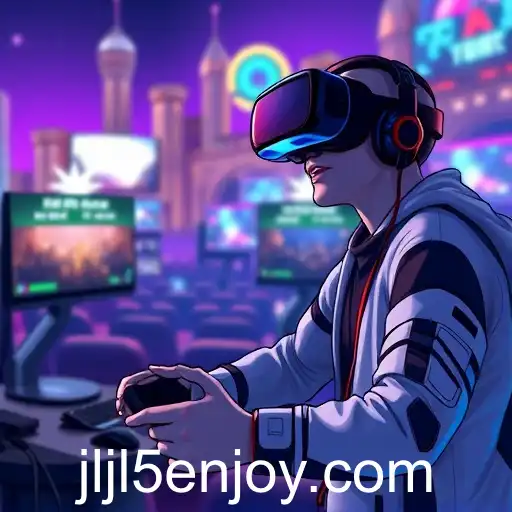Educational Games


Unlocking Potential: The Impact of Educational Games in Learning

In recent years, educational games have emerged as a pivotal tool in modern education, blending entertainment with learning to create an engaging experience for students. As technology continues to evolve, the integration of educational games across various educational levels has significantly altered the landscape of learning. The keyword 'jljl5' might not immediately signal the vast expanse of this topic, but its inclusion encapsulates the evolving digital language surrounding educational platforms.
These games, designed with educational purposes at their core, aim to enhance learning by incorporating interactive elements that challenge learners to apply concepts in real-time scenarios. Unlike traditional educational methods, which often rely heavily on passive absorption of information, educational games encourage active participation. Students are motivated to solve problems, make decisions, and see the immediate consequences of their actions within a controlled, virtual environment.
Studies have shown that students who engage with educational games often exhibit improved retention rates and a better understanding of complex subjects. This phenomenon can be attributed to the role of gamification, where game-like elements such as point scoring, competition, and rewards are introduced into the learning process. By turning lessons into a game, students become more invested and interested, often leading to increased enthusiasm for subjects they once found daunting.
Moreover, educational games cater to diverse learning styles. Visual learners benefit from the rich graphics and interactive simulations, whereas kinesthetic learners thrive on the hands-on approach many games provide. Additionally, these games support personalized learning, allowing students to progress at their own pace, reviewing concepts as needed until mastery is achieved.
While the benefits are numerous, integrating educational games into the classroom comes with its own set of challenges. Teachers must ensure that the games align with learning objectives and curricular standards. There is also the need for proper infrastructure and training to effectively incorporate these tools into daily lessons. Budget constraints in educational institutions can limit access to high-quality educational games, often requiring innovative solutions and collaborations between educators and developers to maximize resources.
Despite these hurdles, the future of educational games looks promising. As technology continues to advance, so does the potential for these games to become an integral part of education systems worldwide. By fostering a love for learning and encouraging the development of critical thinking, problem-solving, and collaboration skills, educational games hold the promise of unlocking students' potential, preparing them for future challenges in an increasingly complex world.
The Rise of Online Gaming Platforms in 2025
Exploring the evolution and dynamics of online gaming platforms, with a spotlight on the keyword 'jljl5' in the year 2025.
Digital Oasis: A New Era for Gaming
Exploring the latest developments in the gaming industry, highlighting the rise of platforms like 'jljl5' and their impact on the global market.
The Evolution of Online Gaming in 2025
Exploring the significant changes and advancements in the online gaming industry in 2025, focusing on key trends and platforms like 'jljl5'.
 Skip to content
Skip to content




